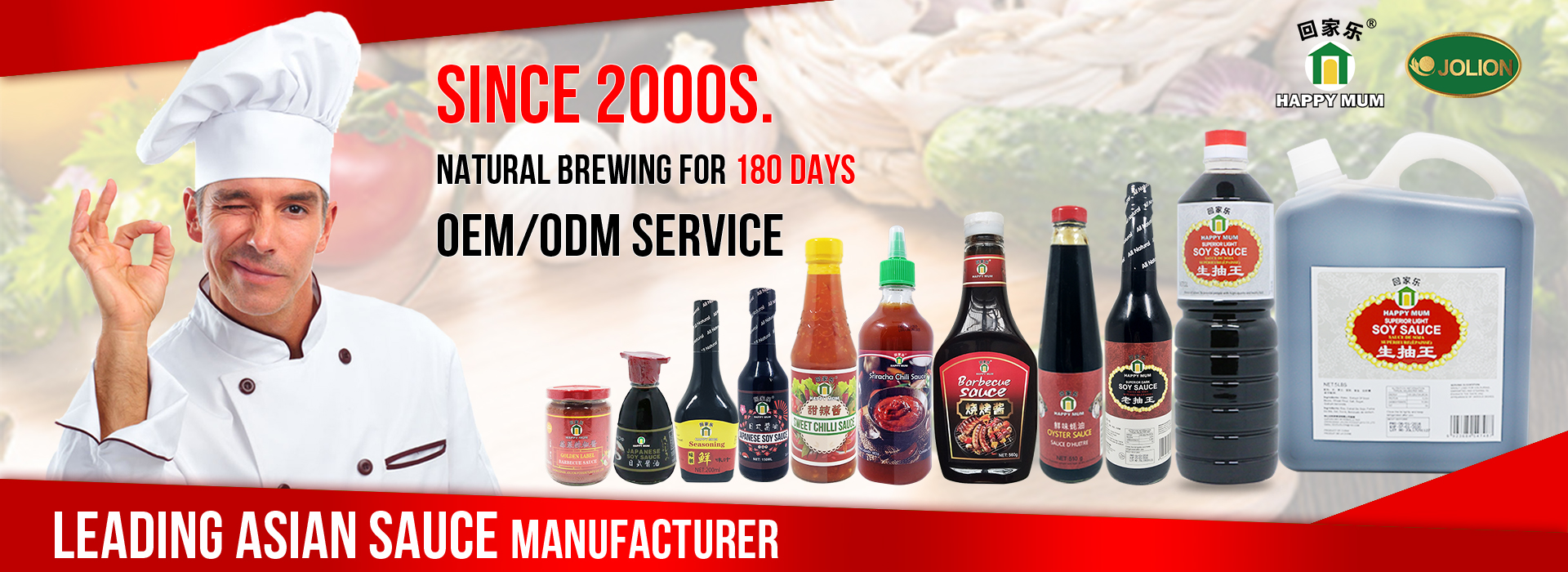
- Exploring JOLION Food's Exquisite Sauces and Noodles at SIAL PARIS 20242024-10-30SIAL PARIS, the renowned international food exhibition, is set to showcase a plethora of gastronomic wonders in 2024. Among the myriad of exhibitors, JOLION Food stands out as a beacon of culinary excellence, promising a delectable journey for food enthusiasts and industry professionals alike.
- The Mystery of Chilli Sauce2025-04-09
- Revealing The True Nature Of MSG2025-04-07
Does Soy Sauce Have Alcohol? Frequently Asked Questions Answered
Soy sauce is a main condiment in many cuisines worldwide, known for its rich umami flavor. However, one question that often arises is, does soy sauce have alcohol? Many people are curious about this aspect of soy sauce and its potential implications for various dietary preferences or restrictions. Let's dive into the topic and explore the presence of alcohol in soy sauce, along with some considerations for those concerned about its alcohol content.

The Primary Ingredients and the Production Process of Soy Sauce
Soy sauce is a savory condiment that adds depth of flavor to many dishes. Does soy sauce have alcohol? To understand this question, let's first look at its primary ingredients and the production process. To understand this question, let's first look at its primary ingredients and the production process. The main ingredients of soy sauce typically include soybeans, wheat (although gluten-free options are available), salt, and water.
These ingredients are essential for fermentation, giving soy sauce a distinctive taste.
For more details about types of soy sauce, please read Investigating Soy Sauce Varieties: An In-Depth Manual on Types and Applications.
●Production Process
The soybeans and wheat are combined and fermented during soy sauce production. This fermentation can occur naturally or with the help of specific microorganisms, such as Aspergillus oryzae, which break down the proteins and carbohydrates in soybeans and wheat.
It's important to note that soy sauce is a fermented liquid, and fermentation involves the conversion of sugars into various byproducts, including alcohol. Therefore, during the fermentation process of soy sauce, alcoholic fermentation can occur, leading to the formation of a small amount of alcohol.
The Portion of Alcohol in Soy Sauce
Then comes the second question: How much alcohol does soy sauce have? Mostly, the alcohol in many soy sauce brands is relatively small, typically 1% to 3%. This means that the alcohol content is significantly lower compared to alcoholic beverages. Now that you know that soy sauce does have alcohol, then let’s talk about evaporation in the cooking process. During the cooking process, especially when soy sauce is heated, most of the alcohol evaporates. You may ask that after evaporation, how much alcohol does soy sauce still have? In the end, the amount of alcohol remaining in the final dish is minimal. For individuals who are concerned about consuming any amount of alcohol, it's important to note that even a tiny residual amount of alcohol may not completely burn off during cooking. However, the quantity of alcohol retained is so minute that it is unlikely to pose a problem for most people.

Wrapping up
Soy sauce does have alcohol, containing a small amount of alcohol because of the fermentation process used in its production. However, the alcohol content in soy sauce is typically low, ranging from 1% to 3%. Most of the alcohol evaporates during cooking, leaving only a minimal residual amount unlikely to impact the body significantly. However, for those with specific concerns about alcohol consumption, it is advisable to check the labels of soy sauce products or seek out alcohol-free alternatives and reliable brands.
If you're a restaurant, retailer, or food manufacturer looking for reliable soy sauce products and condiments suppliers, consider Jolion Foods, which offers wholesale and OEM services. Jolion Foods has become a trusted and leading name in producing Oriental Soy Sauce and Chinese foods. With our state-of-the-art production facilities and commitment to quality, Jolion Foods offers a wide range of products that cater to the diverse tastes and demands of global markets. Our dedication to meeting international standards and certifications ensures that our products are healthy, hygienic, and safe for consumers. When sourcing high-quality Oriental Sauce and other food products, Jolion Foods is the reliable business partner you can count on for excellence and satisfaction.
Related News
- 2025-04-09The Mystery of Chilli Sauce
- 2025-04-07Revealing The True Nature Of MSG
- 2025-04-15The All-Natural Goodness of JOLION Foods Vegetarian Oyster Sauce: A Culinary Delight
- 2025-04-14From Condiment to Culinary Essential: Why Every Chef Needs Mushroom Soy Sauce
- 2025-04-13The Relationship Between Vinegar and Ammonia: Insights from JOLION Foods
- 2025-04-12Why Quality Matters: The Superior Ingredients of JOLION Foods Soy Sauce
Start Your Seasoning Sauce Business by a Free Quote
GET FREE QUOTES
If you are interested in our services, let's have a try on the first project
